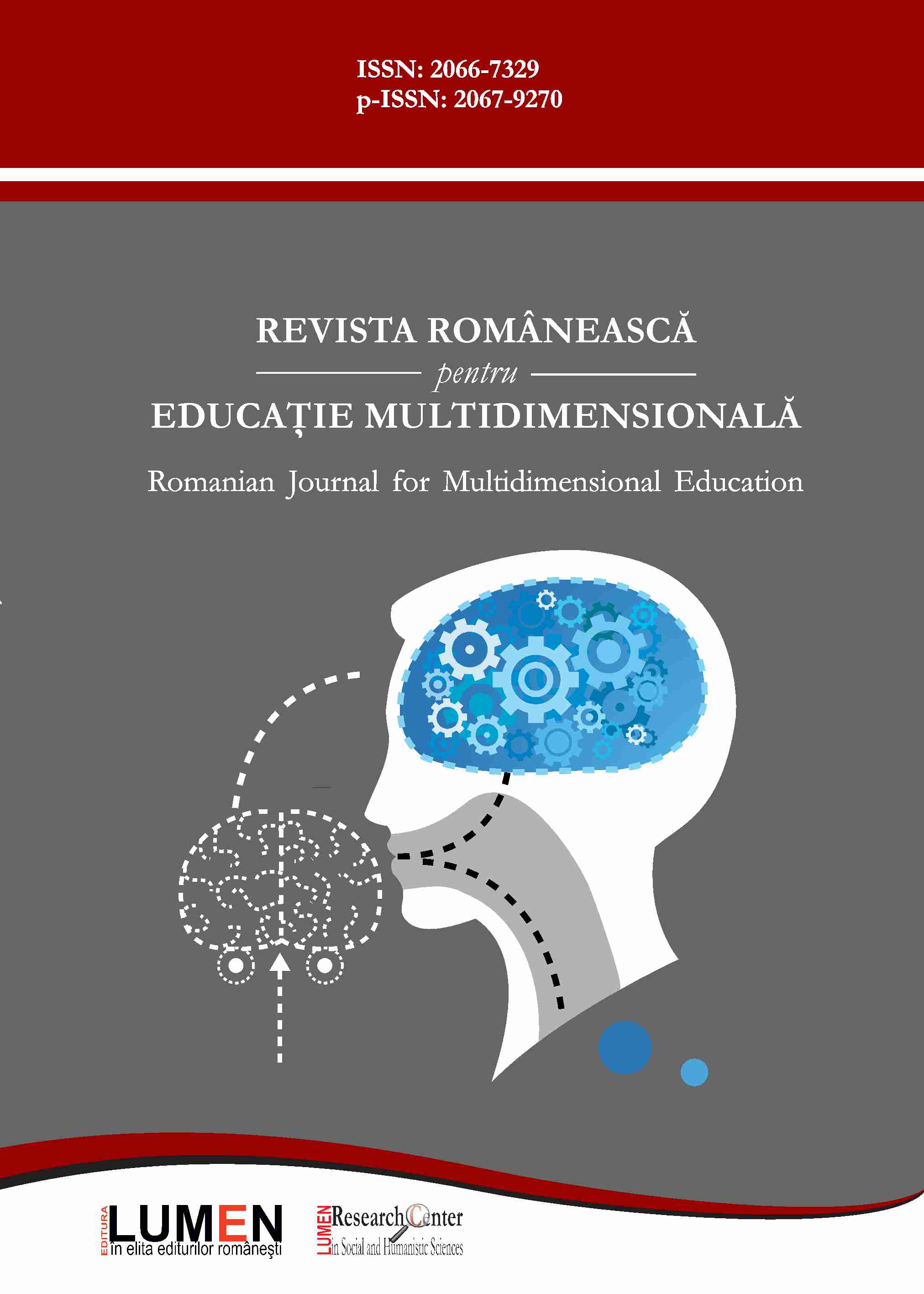Psychological and Pedagogical Features of the Organization of Collective Forms of Work in Different Age-Related Groups
Psychological and Pedagogical Features of the Organization of Collective Forms of Work in Different Age-Related Groups
Author(s): Larysa Prysiazhniuk, Svitlana Genkal, Viktoriia Nadon, Maryna Tomchenko, Iryna Fomina, Andrii LytvynSubject(s): Social Sciences, Psychology, Sociology, Social psychology and group interaction, Organizational Psychology, Identity of Collectives
Published by: Editura Lumen, Asociatia Lumen
Keywords: differentiated education; forms of group interaction; demographic factors; economic feasibility; group microclimate; teacher role; microsocial model;
Summary/Abstract: The article identifies the main problems of the organization, the features of collective educational activities in multi-age classes and ways to overcome them. The relevance of the article is determined by the demographic problem of Ukraine - the threat of closure of small rural schools for economic reasons. The position of the authors in this regard is as follows: if to develop a theoretical basis for the effective association of small classes into large, but mixed-age classes and to stimulate administrative and legal support of such association, it is possible to preserve schools even in the most marginalized areas. The general purpose of the article is to determine the peculiarities of functioning of multi-age classes in today's conditions and to provide recommendations for constructive organization of educational activities of multi-age classes in the realities of modern Ukrainian schools on the basis of the received data. Partial aims of the article - analysis of domestic and foreign literature and consideration of ideas and problems of teachers of Ukrainian small schools to obtain data, analyze them, and formulate recommendations. Criteria for selection and analysis of the literature - thematic, temporal (mainly the latest sources), problematic (coverage of the maximum number of problematic aspects) and practice-oriented (data can be extrapolated, adapted, borrowed). This determined the methods of the article: typological. comparative, pragmatic analysis of the content of educational conditions and principles related to the topic; sociological (elements of questioning teachers unrepresentative sample) for general opinion of teachers, getting suggestions (request) and teachers' attitude to the problem. At the final stage, methods of extrapolation (according to the installation "world tendencies - Ukrainian realities"), generalization and forecasting were used. Prospects for further research lie in the development of integrated teaching methods and forms. The latter should be both maximally differentiated, but expediently integrated, and subjects of different ages should minimally interfere and maximally mutually assist in achieving educational goals.
Journal: Revista Românească pentru Educaţie Multidimensională
- Issue Year: 14/2022
- Issue No: 1Sup1
- Page Range: 172-190
- Page Count: 19
- Language: English

